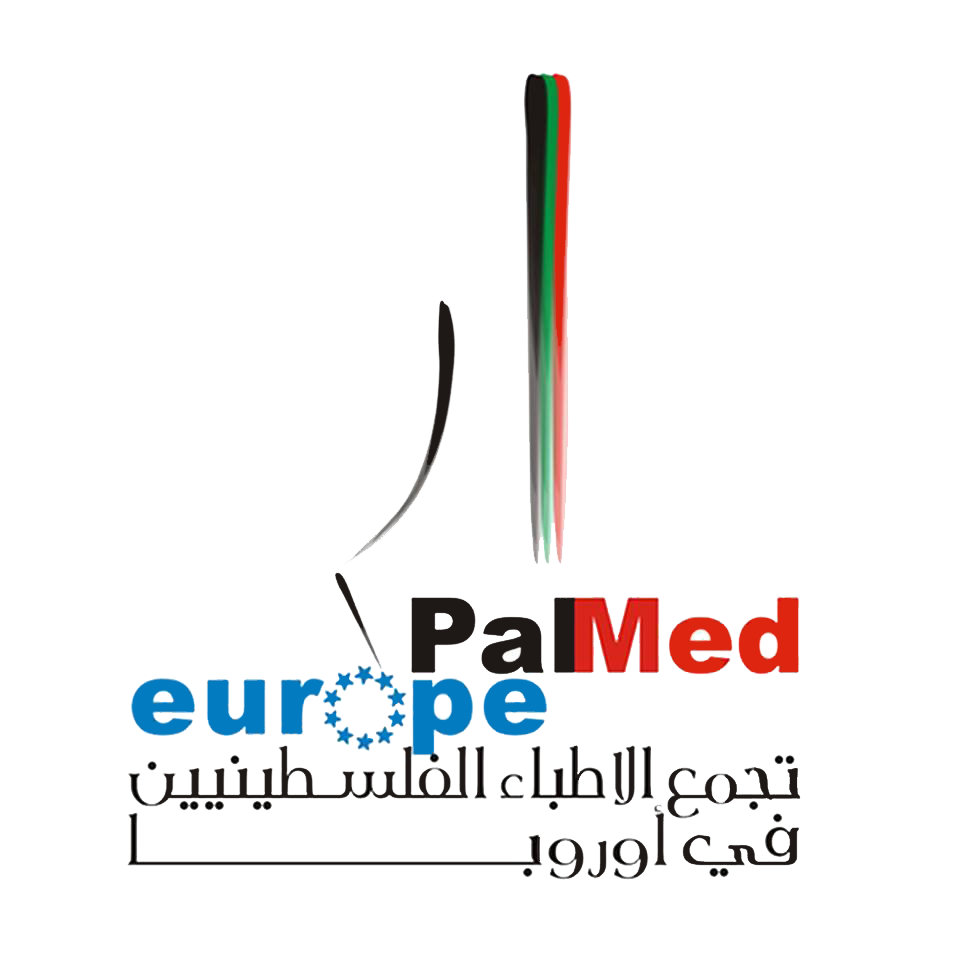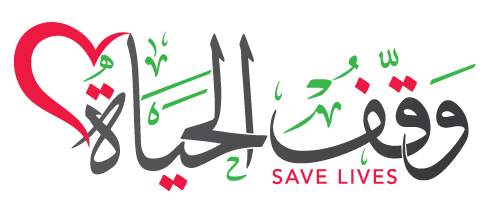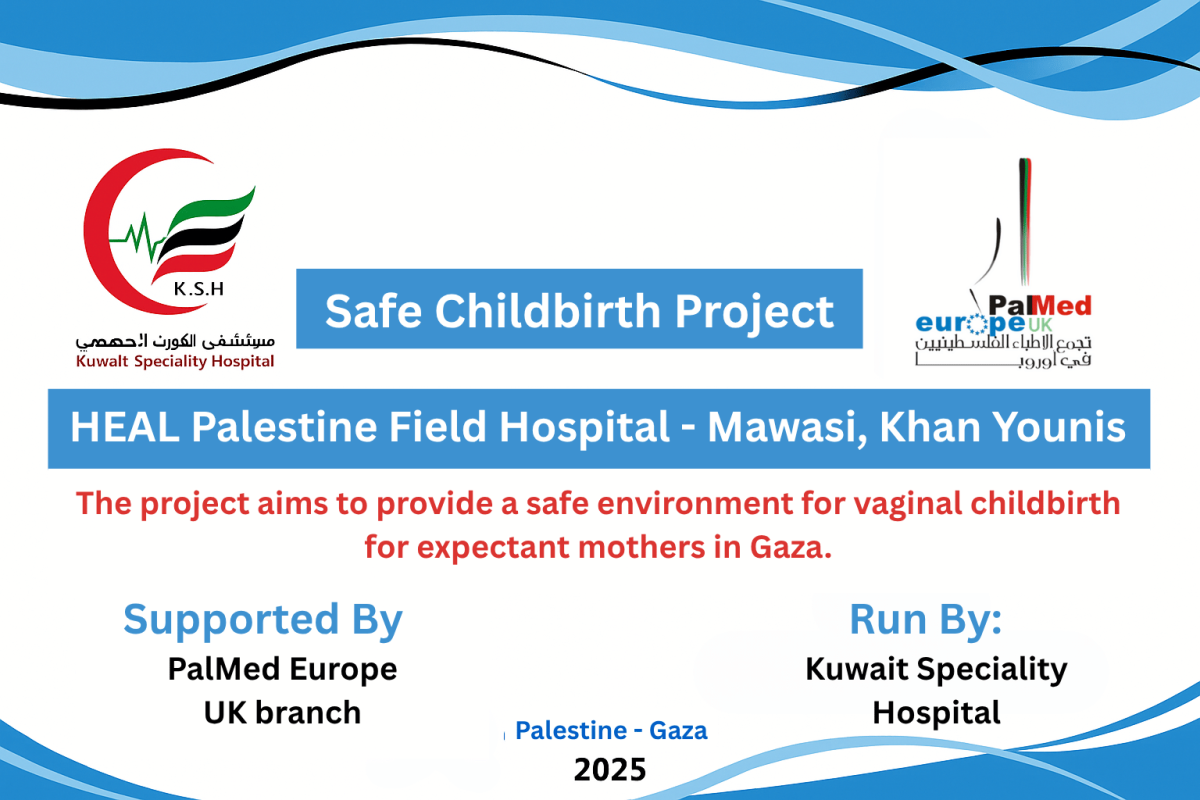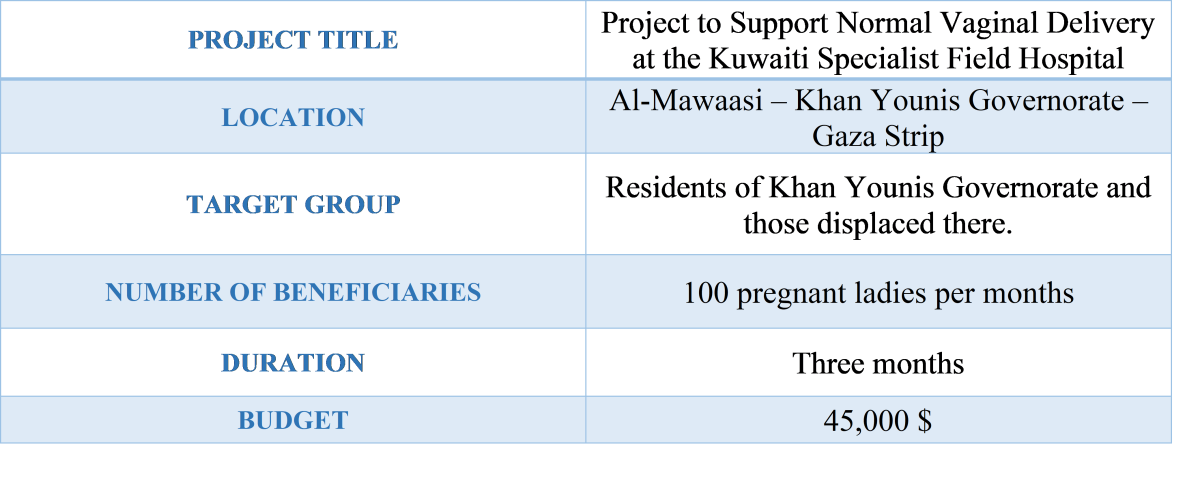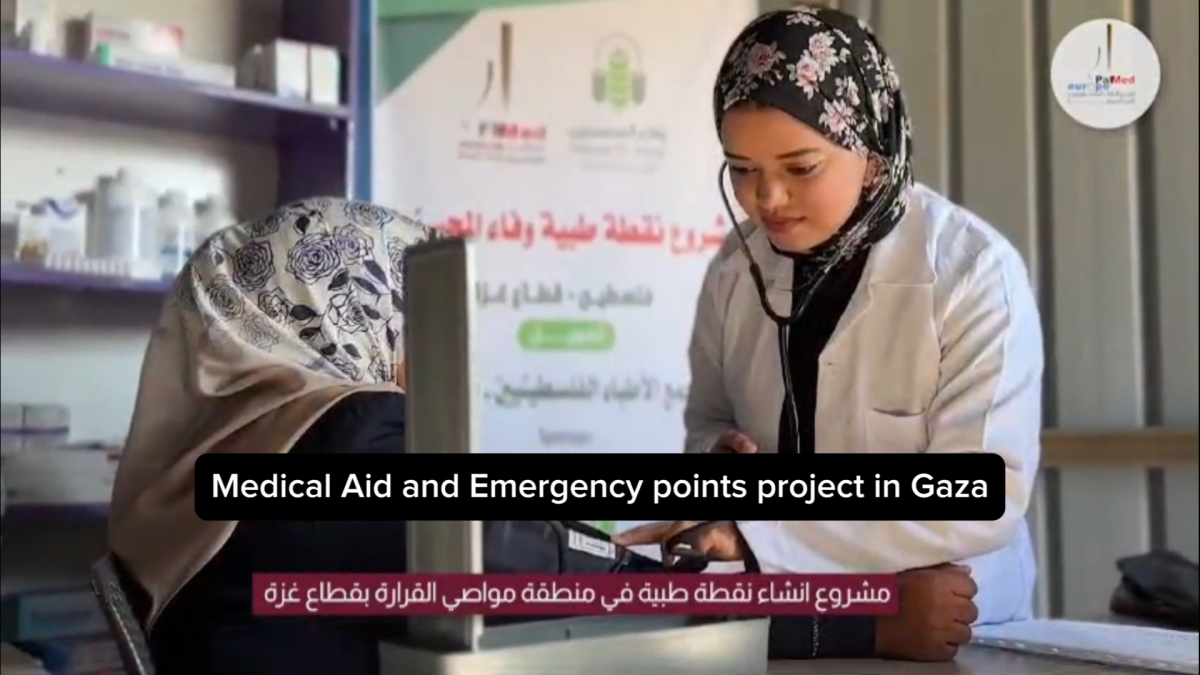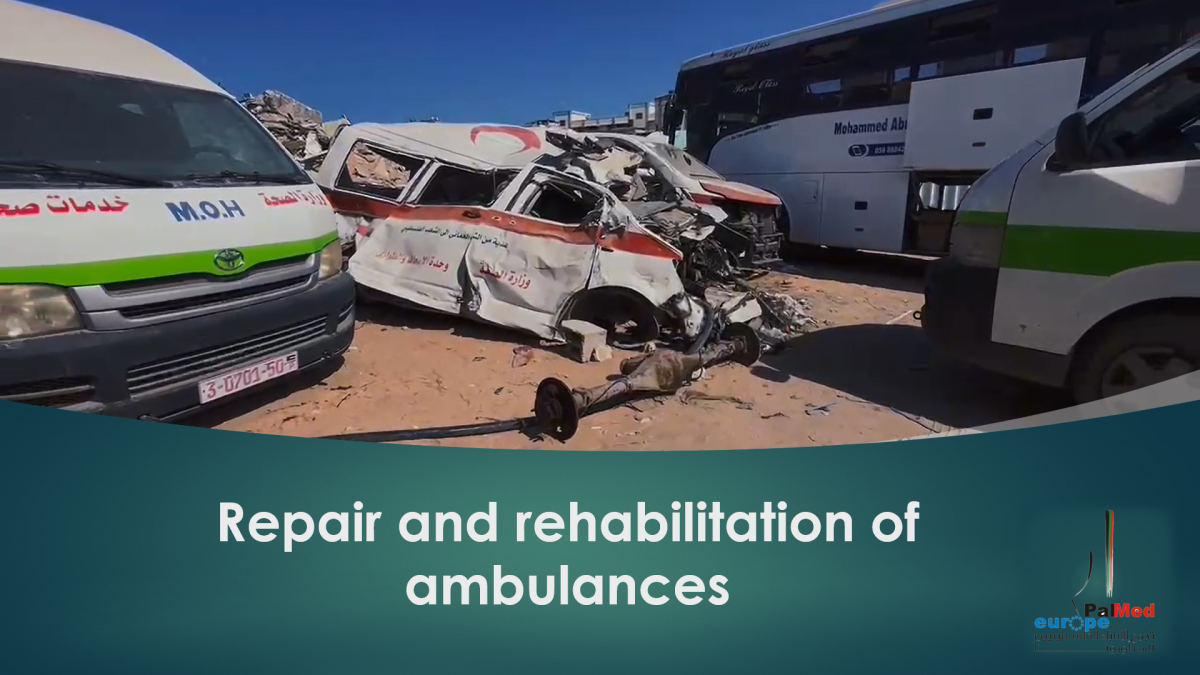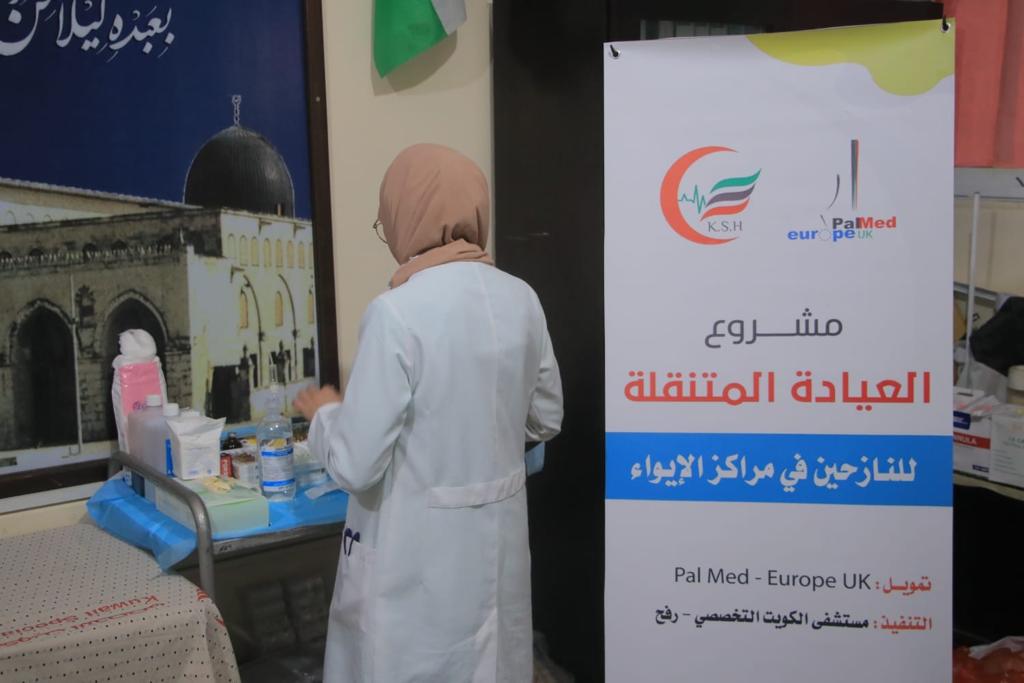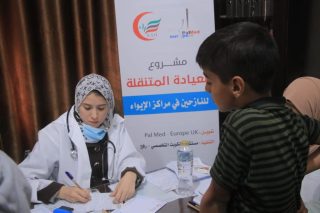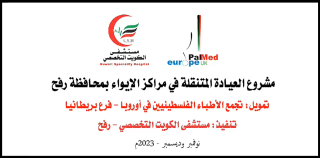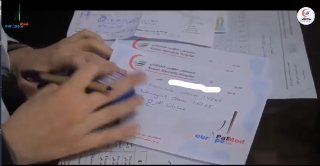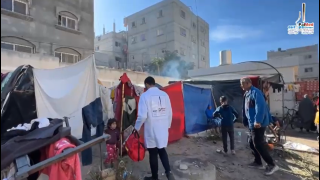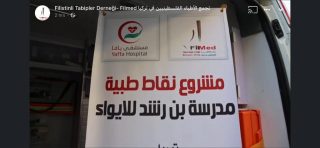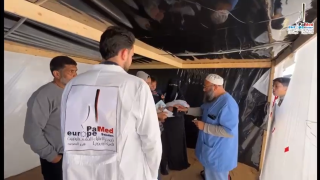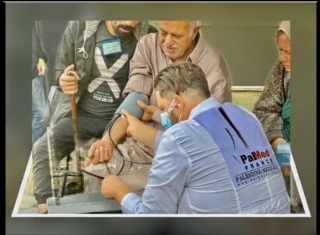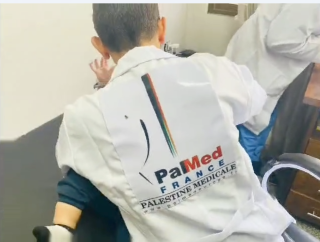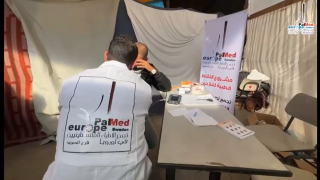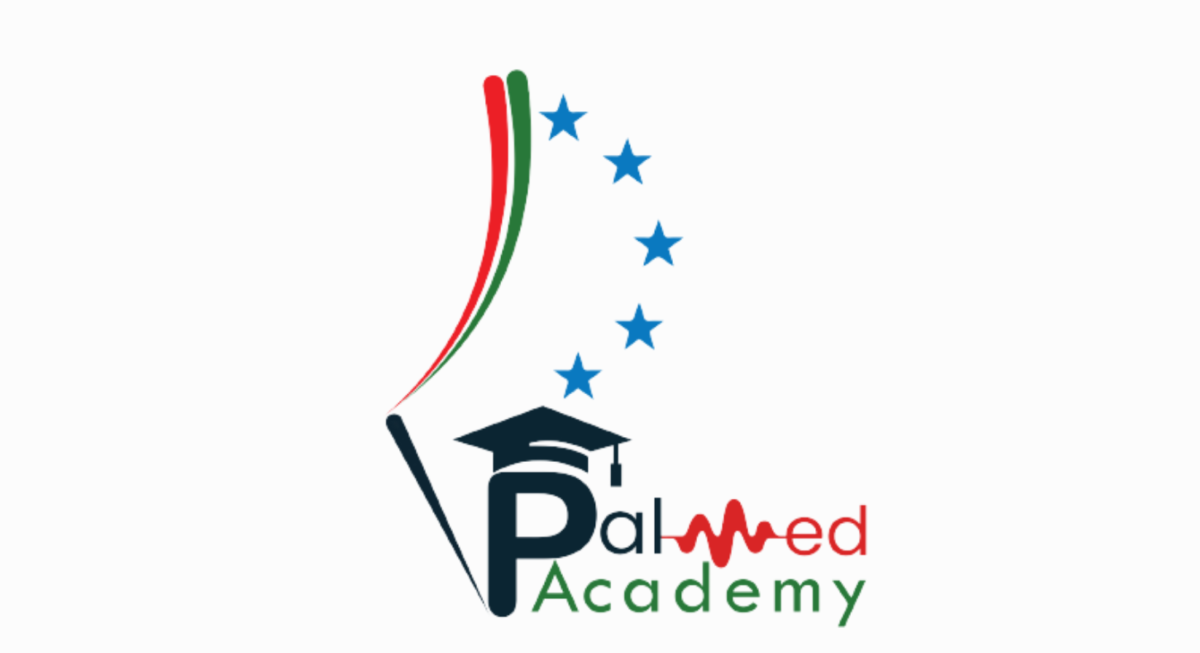The project aims to provide a safe environment for vaginal childbirth for expectant mothers in Gaza.
Overview of the Kuwaiti Specialist Hospital:
The Kuwaiti Specialist Hospital was established in Rafah Governorate as a charitable hospital that does not aim for profit, but rather to provide distinguished medical services to the general population, especially the at risk and poor groups, at reduced prices and around the clock. This in turn imposes huge financial burdens and an increase in operational expenses, which represents a challenge to the hospital’s ability to continue providing its services. Due to the complete destruction of the health system in the Gaza Strip, the hospital was prompted to establish a huge field hospital in Khan Yunis Governorate ” HEAL Hospital” that provides medical services to the displaced from the central and southern governorates of the Gaza Strip. Accordingly, the hospital needs to continue external support and adopt development and charitable projects to support marginalized groups. The following is an overview of the hospital’s services: Emergency and outpatient services: urology, dermatology, ophthalmology, respiratory, orthopedic, radiology, ENT, oncology, vascular surgery and diabetic foot, obstetrics and gynecology, cardiology (adult), internal medicine, general surgery, pediatrics, pediatric surgery, pediatric cardiology, pediatric neurology, neurosurgery, neurology, psychiatry, and dental center. Two fully equipped operating rooms and around 35 surgical operations are performed daily in the following specialties: urology, general surgery, gynecological operations, caesarean sections, pediatric surgery, orthopedics, ear, nose and throat surgery, normal vaginal deliveries service, laboratory service, pharmacy service, and radiology and television imaging service.
About 300 employees work at the hospital, distributed among: specialist doctors, general doctors, pharmacists, nurses, paramedics, anesthesia and radiology technicians. This is in addition to the administrative staff, ambulance drivers, security guards, and cleaning workers.
Project Information Summary:
Project Idea:
In light of the high population density in the southern governorates of the Gaza Strip and the complete collapse of the healthcare system, the number of childbirth cases received by the Kuwaiti Specialist Field Hospital has significantly increased—particularly normal vaginal deliveries. These cases also require appropriate medical care, including the presence of qualified medical staff, well-equipped delivery rooms, maternity wards, and logistical support to ensure services are provided in a safe and dignified manner. This project aims to support the coverage of costs for 300 normal vaginal delivery/childbirth cases, representing the expected number of deliveries over a three-month period. The initiative seeks to alleviate the significant financial burden borne by families amidst the deteriorating economic conditions caused by the ongoing war, while also strengthening the hospital’s capacity to continue providing its services—especially in light of the heavy pressure resulting from the influx of emergency cases, injured individuals, and patients requiring surgical procedures and ongoing care.
Project Objectives:
Conduct normal vaginal delivery cases at the Kuwaiti Specialist Field Hospital.
Alleviate the financial burden on beneficiary families by providing childbirth services free-of-charge.
Support and strengthen the collapsing healthcare sector that has been devastated by the war.
Project Justifications:
Continued influx of normal vaginal delivery cases to the hospital, as public hospitals remain overwhelmed with emergency cases, injuries, and follow-up care for the wounded.
The shutdown of most hospitals and medical points due to the ongoing genocide, while the urgent need for childbirth services persists.
The inability of the vast majority of families to cover the costs of normal vaginal deliveries—even though relatively low—due to the dire economic conditions.
Project outcomes:
The project aims to cover the costs of 300 normal vaginal deliveries, which is the expected number over a three-month period, at the Kuwaiti Specialist Field Hospital, receiving all incoming normal vaginal delivery cases.
Project budget:
The following table outlines the budget for the Normal Vaginal Delivery Support Project at the Kuwaiti Specialist Field Hospital:
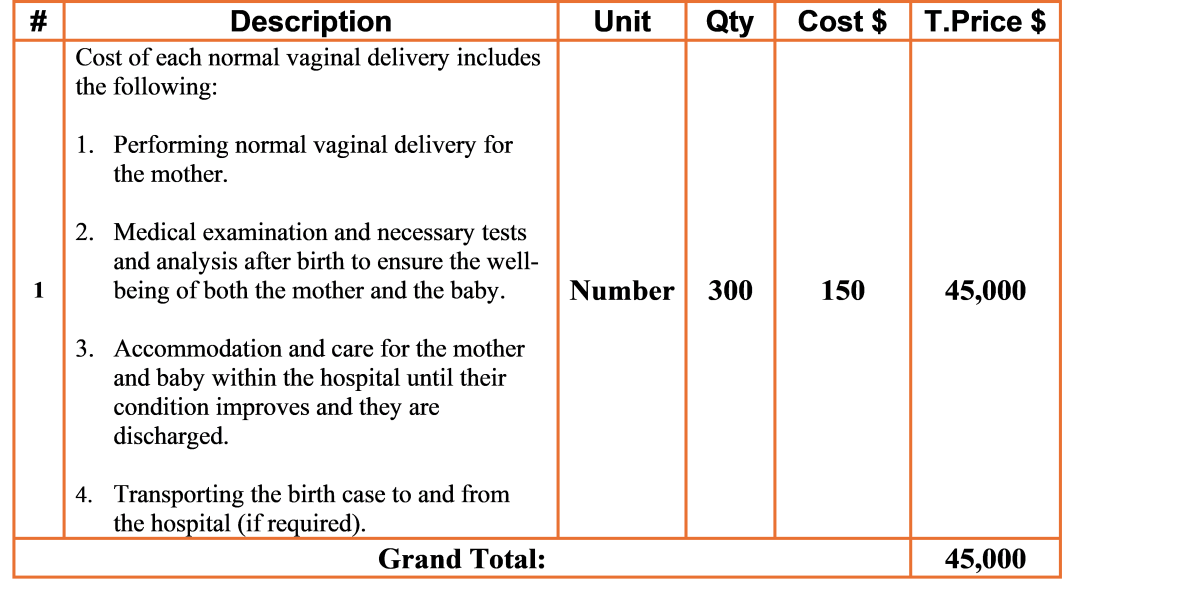
Donate Now to help people in Gaza: Press on Me for Donations
